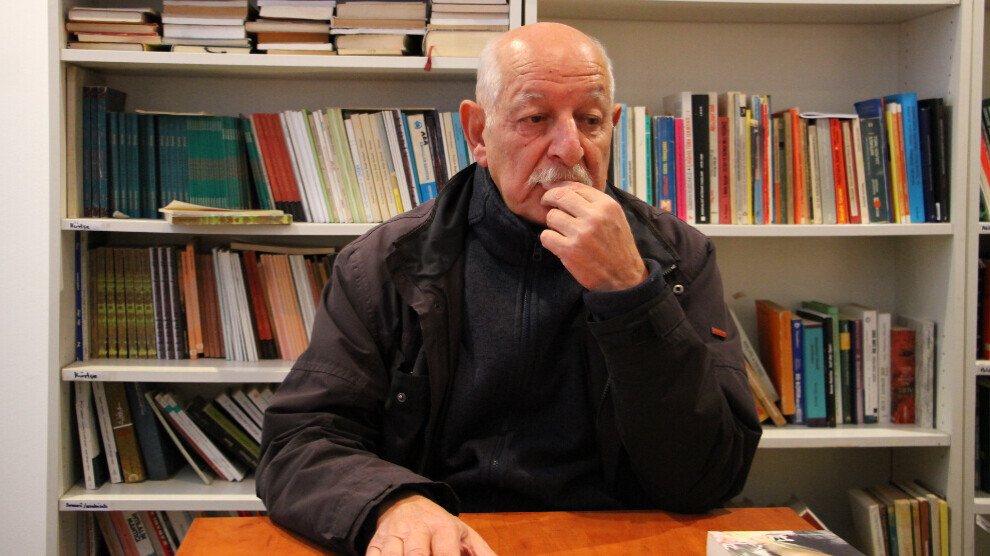İsmail Parmaksız: 'The PKK was a source of hope for us'
İsmail Parmaksız is one of the Kurds who came to Berlin in 1972. He has been a Kurdish revolutionary since 1976. He said: “The PKK was a source of hope for us. We saw victory in the PKK."
İsmail Parmaksız is one of the Kurds who came to Berlin in 1972. He has been a Kurdish revolutionary since 1976. He said: “The PKK was a source of hope for us. We saw victory in the PKK."

Parmaksız said that they started to work with Kurds in 1977 using the documents "Let's Understand the Right Way" and "Maras Massacre". He describes those days as "a difficult but important period".
He came to Berlin in 1972, concentrated on the Kurdish issue and researched Kurdish movements during his school years in 1976-77.
Parmaksız describes his meeting with the Kurdistan revolutionaries of the period as follows: “One day, while I was visiting the Kurdish association, people from the west of Germany had a discussion with friends and our dialogue process started. In 1977, as Kurdistan revolutionaries, we became involved in democratic activities. We started with the two documents we had in our hands. One of them was called 'Let's Understand the Right Way' and the other was called 'Maraş Massacre'. That was all we had. Papers were coming and we were preparing them as texts, then the Leader's Manifesto came. We had discussions among ourselves, concentrating on the Manifesto, and formed a group. It was a difficult time for us, but it was a valuable time.”
Noting that they accelerated their work after the establishment of the PKK was announced, Parmaksız said: “Wherever we saw people speaking Kurdish, we would go and talk and have discussions. We went from house to house. We were meeting and discussing with everyone we saw speaking Kurdish. The PKK was a hope for us. We were seeing victory in the PKK. There was no life without the PKK.”
After the 12 September 1980 coup d'état, hundreds were forced into exile. Parmaksız says: “We had a difficult time both in the country and in Europe, but we did not stop. At that time, there were central actions. We were very few in number, but we continued our struggle by increasing it.”
Reminding that there were killings, village burnings and evacuations in the 1990s in Kurdistan, Parmaksız continues: “The resistance was growing and the state was terrorizing the people. These two things were reflected on us Kurds living in exile. It was unthinkable for us to remain silent against all the violence of the Turkish state and protests began. Moreover, Germany was also supporting and arming the Turkish state. Democratic protests against the Turkish state began.”